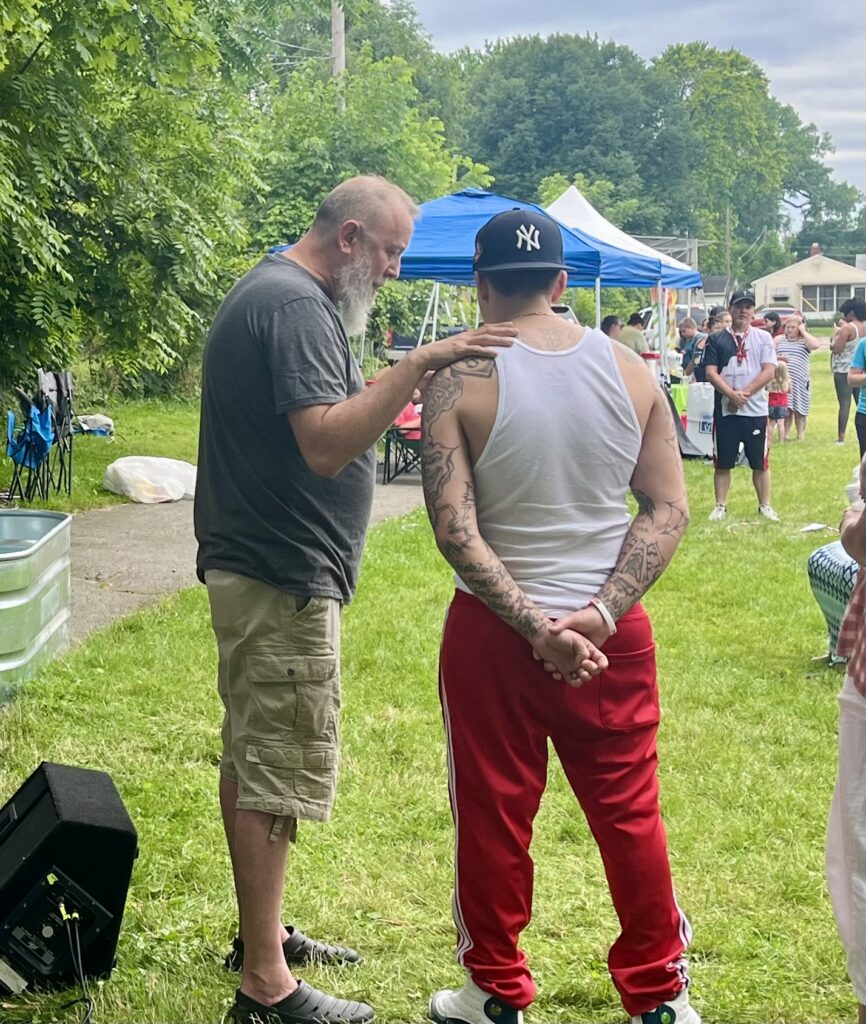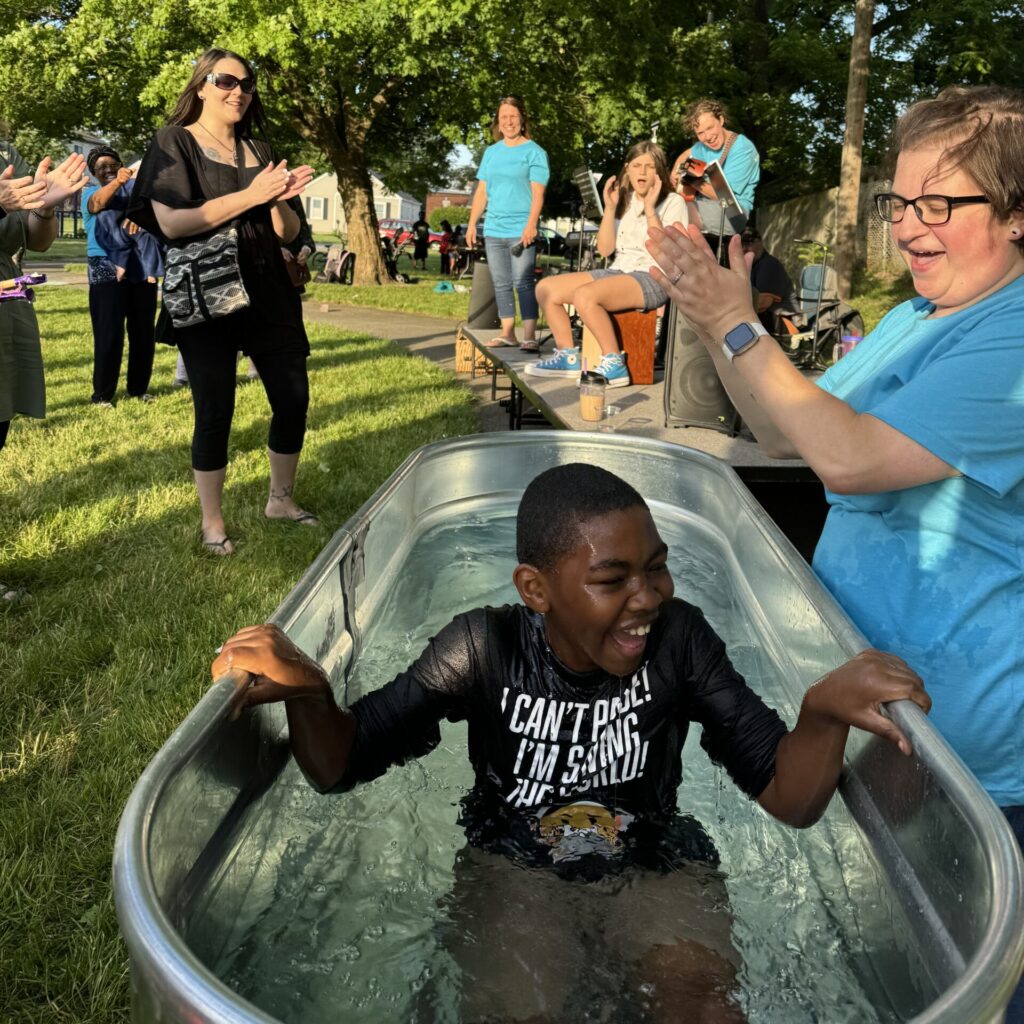5 Things
Five Ways to Engage Men in Church
Published
5 years agoon

By Aaron Kerr
Many pastors in churches across America walk into auditoriums and preach to audiences that are mostly women. Many of these pastors don’t even realize how lopsided their numbers are in the favor of the ladies. This question should plague every pastor’s mind: How can I engage the men? Not that women aren’t important, but let’s face the music: getting the men to stick with a church is typically more difficult. That’s why Mother’s Day is one of the biggest attendance days of the year and Father’s Day isn’t.
Here are some steps to help raise the “masculinity quotient” in your church family.

1. SING MASCULINE-FRIENDLY MUSIC.
Please STOP singing erotic love songs to Jesus. When a guy walks into your service, does he feel like he’s listening to music from a Nicholas Sparks’ film about lovers or is he hearing music about the most powerful being in the universe, a powerful warrior King worthy of being followed? Sing music about the greatness and glory of God and less about feelings and being held tenderly by Jesus. Seemingly erotic love songs to Jesus are like kryptonite to men.
2. MAKE JESUS MASCULINE AGAIN.
Masculinity is not something to be ashamed of, but it is incredibly lacking in the American church. The early Church was a courageous group following a fearless King, and we’ve traded in that concept to follow a picture of a mild-mannered man petting sheep and teaching Sunday school to toddlers. There’s nothing wrong with men teaching children’s Sunday school. By all means, it would be good to get more men in those spaces. But men want to follow someone worthy of their worship, and for many men the “kids’-camp-counselor” or “petting-zoo image” of Jesus isn’t that guy. We need to stop asking men to focus on how they feel and instead focus on what they are called to. Men tend to value duty over feelings, and following a mighty King is our calling.
3. PLACE VALUE ON FATHERHOOD.
The world we live in is full of broken families and fathers who are either absent or terrible role models. We have multiple generations that have never been taught what a truly healthy father looks like. Our culture suffers greatly from a shortage of quality fathers. We need to be teaching fatherhood and healthy family dynamics. We need a strong emphasis on supporting blended families and encouraging other men to mentor those who don’t have good fathers. We are supposed to be a church family, right?
4. PROVIDE PLACES FOR MEN TO SERVE.
In what areas of your church do men typically want to volunteer and take part? Most men don’t flock to be part of kids’ ministry, so is there another place for men to connect and feel like a valuable member of the body of Christ? Our church has a team called Journeymen (Journey is our church’s name) that helps single moms, the disadvantaged, and the elderly with home repairs, yard work, and other chores. Men love this ministry; they are passionate about it! They are getting to be the hands and feet of Jesus! I hear the same emotional reaction when I speak to men who travel with Open Bible’s MOVE construction ministry team. Men have an innate desire to be useful, valuable, and respected. If they can’t see that their contribution in your church body checks off these important boxes, you’ll have to work really hard to get them to show up.
5. EXAMINE WHAT IT MEANS TO BE A PEACEMAKER.
The church needs to change its mindset around the concept of a peacemaker. When you break down the Hebrew word “shalom,” which we translate as peace, it means “to overcome the one who causes chaos.” Men are not called to be passive creatures that quietly exist in peace. Men are mandated by God to create peace. Men need to understand that wherever they go, they are created to bring stability, safety, and security. This is not accomplished by always being nice, timid, or harmless. We need men who are willing to fight. Creating peace is a battle, and we need courageous men of God to lead that fight. Men need to know that their church needs masculinity.
The ironic thing is that when churches incorporate these ideas and focus on reaching the men, not only do the guys show up, but so do the ladies.
About the Author

Aaron Kerr is the Student Ministries Director at Journey Church of the Open Bible in Urbandale, Iowa. His family’s mission is to raise up future men and women of influence. Aaron and his wonderful wife, Nicole, and their son Benaiah live in Des Moines, Iowa.
5 Things
Five Trusty Tools for Parenting Teens
Published
2 months agoon
April 25, 2025By
Candi Hagan
Don’t you just hate it when you start a project and don’t have the right tools? I do. I love a good DIY project, but I almost always have to go buy a tool to get the job done. DIY projects feel very similar to parenting. You see a picture of something, think, “How hard could it be? Those people look happy with that baby – we’ve got this.” Then the teenage years hit, and it’s “Pinterest Fails” in real time: nothing looks like the picture, and you don’t have the right tools to do the job. Having the right tools can make all the difference, both in a DIY project and in parenting your teens.
Let’s be honest: parenting in 2025 is not for the faint of heart, and parenting teenagers during this time is something only crazy people do. Parenting with purpose and intentionality in the midst of smart phones, social media, unlimited access to information, and hormones kind of seems like a recipe for disaster. If you feel like your toolbox is missing some tools, let me share some that I use on a regular basis.
Five tools that are currently in my toolbox:
1. Healthy Boundaries.
If you don’t have them, now is the time to create them. You’re going to want to go ahead and set boundaries for the whole family: parents, kids, and every stinkin’ electronic device you own. You need a plan on how you are going to manage and honor these boundaries. Boundaries create margin, and margin is key to survival. Take some time and decide what you would like this to look like, plan it out, and stick to it.
2. A Healthy Relationship with Therapy.
I think a lot of times, we as Christians struggle with shame when our prayers don’t result in erasing all our mental and emotional pain (or that of our kids’). What if God’s answer to some of those prayers comes in the form of a great Christian therapist? Just like Esther, you and I were born for such a time as this, and in this time, we can access incredible resources found in a solid Christian therapist. It might not seem like a great idea and your kids might not like it at first, but have a conversation and strike up a deal. I was not above bartering with my teens, not when their mental health was on the line. This tool might not be for everyone, but give it some thought and maybe stick it in your toolbox for emergencies only.
3. Keeping the Conversation Going.
We all spend hours in the car, right? Take that drive time to ask your teen questions, simply listening without trying to fix anything (this is the hardest part). The goal is to create a space that allows your teen to feel heard, a space that lets them process their “BIG FEELINGS.” Be encouraged: this tool has a quick turnaround, similar to the timetable of teenage feelings. Hang in there, we will make it!
4. Good Coping Skills.
Drinking Starbucks and shopping at Target, though very enjoyable, are not healthy coping skills. We all have coping mechanisms and your teenagers will too, but we can help them develop healthy ways of dealing with their emotions. Take a walk, ride a bike, go fishing, journal, paint, listen to music, chop some wood (Anger is a real emotion and if you need firewood, it’s a BOGO!). The key is to help your child discover healthy ways of dealing with their “BIG FEELINGS”; they cannot be ignored, they must be processed, and one way or another they will be.
5. Proper Navigation of God’s Word.
I am hopeful that the seeds planted in the lives of my kids will bear much fruit and be a testimony of how good God is.
Does your child know how to read God’s word in a beneficial way? Have you spent time with your teen, teaching them the benefits of a quality quiet time? Don’t just ask your teen, “Do you know who you are in Jesus?” They might not understand how to answer that; my kids didn’t the first time I asked them. Get them a good study Bible, grab that cool journal, and yes, buy the fun pens. We want to encourage this time in the Word. This must be a priority in their life so that when they encounter all of those “BIG FEELINGS,” they can lay those down next to the Word of God, discover who God is, and in turn understand who they are in Him.
Take heart, we will make it through this. It’s just a season, right? I don’t know all the answers, but I am hopeful that the seeds planted in the lives of my kids will bear much fruit and be a testimony of how good God is and how much He really loves us! Now, go fill your toolbox with some good tools!
About the Author

Candi Hagan
Candi Hagan is a pastor and art teacher living in sunny Florida with her husband, Nathan, and their three teenagers (though they’re on the brink of their empty-nester adventure). Together, she and Nathan serve as the Regional Directors for the Southeast Region of Open Bible Churches. Candi is always working to be the best version of herself and is so thankful for the restoration found in Jesus. When she’s not teaching or ministering, you’ll likely find her in the kitchen whipping up something delicious, in the garden tending to her plants, or painting.
5 Things
Five Actions to Address the Gap of Women in Ministry Leadership
Published
6 months agoon
December 20, 2024By
Julie Cole
Open Bible has a rich heritage of women ministry leaders. Our denomination was birthed in revival and formed by the union of two movements that branched off from other denominations founded and led by women (Florence Crawford and Aimee Semple McPherson). Open Bible’s position on women in ministry leadership celebrates women leaders at all levels. However, even with this rich history and current blessing for women in ministry leadership, it is still rare to find women in certain ministry positions within our churches. There are multiple reasons for this, but here are five actions to consider when addressing this issue.
1. Look at your own biases.
Most often, women aren’t chosen for senior leadership roles because “it hasn’t been done before.” Tradition can be a powerful force, but sometimes it keeps important change from happening. Ask yourself how you would feel if a woman were chosen as the senior pastor of your church. Chances are it might feel awkward. Awkward doesn’t always mean it’s wrong. It usually means it’s just different. This awkwardness is often temporary, and the willingness to lean into it can create new opportunities for women to lead. When a ministry leadership position opens, allow yourself to consider both women and men as candidates for the position.
2. Study what Scripture says about women leaders.
The Old and New Testaments are full of women who played important leadership roles at all levels. Look at the influence and level of authority they were given. Study the “problem passages” (e.g. 1 Corinthians 14:34 and 1 Timothy 2:12) in Scripture that appear to limit women teaching and speaking. Some reputable scholars and commentaries show how these passages were meant to address specific problems that the early church dealt with rather than become an overall rule limiting women in leadership. If you are a church leader, clearly communicate your church’s position on women in ministry leadership. Too often, this topic is ignored, keeping the status quo going.
3. Champion women leaders.
Encourage women, young and old, who have the gift to lead. Mentor them. Hire them. It is a blessing when a woman unselfishly cheers on another woman in her leadership; too often, there’s a temptation to be jealous or deliver harsh criticism, which leads to hesitance in stepping into leadership. It’s especially impactful when a male leader encourages and makes room for a woman to lead. Giving the same opportunities to women that would be given to men who are learning to lead is so important. Too often it is rare to have a young woman given time on stage or other public responsibilities while such opportunities are given to the men who are being trained. Try to be equal where you can. Make room for inexperience and give repeated opportunities to learn and grow.
4. Preach about strong women leaders in the Bible.
Scripture is filled with women leaders such as Miriam, Hannah, Esther, Deborah, Mary, and Priscilla. Highlighting their lives shows how God’s leadership gifts are given to both men and women. This encourages women leaders and gives them biblical role models.
5. Nurture a culture of leadership sharing.
Many times, the church hears from one pastor’s voice most of the time. Regularly sharing the pulpit creates space where leaders in training can experience public ministry. Allowing both men and women to preach helps your congregation become accustomed to both male and female leadership, creating a bench of players who can be trained to assist at all levels of church leadership. This keeps the church from idolizing or draining one leader and allows more people’s gifts to be shared.
The Church, the Bride of Christ, functions more fully when men and women work side by side in leadership. When women’s voices and leadership gifts are ignored or limited, half of the Church’s voice is muted. However, when men and women unselfishly share leadership and influence, God’s kingdom moves forward powerfully. This unselfish sharing of leadership reflects God’s nature more fully, creating a space where the Holy Spirit can come and powerfully move.
Additional resources:
- Open Bible Manual – Official Statements 7.6: The Role of Women in Ministry and Leadership (p. 89)
- Open Bible Webinar: Women in Ministry Leadership: Answering God’s Call
- Book to help with biblical theology of women in ministry leadership: God’s Women Then and Now by Deborah M. Gill and Barbara Cavaness.
About the Author

Julie Cole
Julie Cole is the Associate Director of Spiritual Formation and Soul Care at The King’s University in Southlake, TX. She’s a licensed marriage and family therapist, spiritual director, and an ordained minister. Julie desires to inspire people to hear God’s voice and to see His hand in both the big and small experiences of life. Julie and her husband, David, live in Fort Worth, Texas, and have four children and eight grandchildren with two more on the way in 2025.
5 Things
Five Lessons Learned While Reaching a Neighborhood
Published
8 months agoon
November 1, 2024
Years ago, I took the StrengthsFinder Assessment, which is designed to help a person understand their top gifts. “Achiever” fell at the top of my list, and I found myself feeling uncomfortable with this result. I wrestled with my uneasiness, unsure why I felt this way until God began to unlock my understanding. From the time I was young, I had built my life to be full to the brim, accumulating a long resume of accomplishments, none of which brought me satisfaction. Instead, God placed a hunger inside of me to be marked by the supernatural. One definition of supernatural is “above, beyond, and far higher and greater than the natural.” I longed to see things that exceeded what I could do through my own achievements and to witness the power of God in my daily life.
God placed a hunger inside of me to be marked by the supernatural.
Since that time, God has taught me to forsake striving and performance, instead discovering His will and wisdom by walking in friendship with Him. Even more than before, my heart yearns to experience ministry moments that inspire awe of our magnificent God. Our team had the honor of experiencing some of these moments during our summer of outreach at Asbury Park. As I share our story, I’ll also share the five lessons we learned through reaching our neighborhood.

1. We can partner with God to see His desires fulfilled.
We were gathered for our regular weekly prayer meeting when God said, “I want this neighborhood. Will you make My name great at Asbury Park?” We felt the weight of this invitation. For a year, we had been hosting neighbors in the basement of our ministry house for weekly dinners. Dozens had found community and a sense of belonging in that space. Some had already met Jesus, but He wanted us to cast the net further. No one on our team had imagined taking our Thursday night dinners out to the park for the summer. But God had heard our cry: “God, you get to do whatever is in your heart to do. We pray your will be done in this region and that Jesus would be glorified.” And that day, He gave us another piece of His blueprint for our region.
2. We don’t have to strive.
Naturally, we looked at the invitation from God and imagined possibilities of how to gather the community at our neighborhood park. We considered the successes of past events that utilized raffle and prize incentives or entertainment such as bounce houses. We went back to prayer and God revealed more of His plan to us. He wanted it simple. As we prayed, He gave us visions of the stations in the park: crafts themed to tell the story of creation, food to fill bellies, a field with kids carefree and playing, bold worship, and a baptismal. He said to get ready for people to be saved and baptized!
May we all live in daily expectation of the things that are beyond what we could do in our own ability, partnering with God and watching His fame spread across the earth.
3. God has a storehouse of provision.
Although God’s plan was relatively simple, we did not have the finances or workers to pull off this vision of taking dinners to the park every other week throughout the summer. God impressed upon us that He would be faithful to provide everything we needed to serve the community in this way. We chose to embrace His plan with faith that He would make a way.
4. God loves collaboration.
God brilliantly inspired us to reach out to many individuals and groups, inviting them to partner with us in reaching the Five Points Neighborhood in Toledo. Over a dozen churches were represented by the participants who filled volunteer slots and donated food and supplies. The greater Body of Christ truly came together, unified around Jesus and His mission.
5. Love + Power + Gospel = Jesus gets His reward
When our dinners first launched at the ministry base in 2023, God gave us a foundational verse to build upon:

“Walk continually in love [that is, value one another—practice empathy and compassion, unselfishly seeking the best for others], just as Christ also loved you and gave Himself up for us, an offering and sacrifice to God [slain for you, so that it became] a sweet fragrance” (Ephesians 5:2 AMP).
God desired for this aroma to rise to Heaven, the smell of a people walking in sacrificial love. And so, His people took that love to the park. We shared the good news that Jesus gave His life so that all could be saved, healed, and delivered. Many accepted the invitation to receive this gift from Jesus, giving their lives to Him. People experienced healing in their bodies and freedom from bondage. Many encountered the power of the Holy Spirit in a personal way. Twenty-four people chose to follow Jesus through water baptism!
God rained down this summer on Asbury Park. It was His plan, His provision, His glory. It was Jesus’ reward. May we all live in daily expectation of the things that are beyond what we could do in our own ability, partnering with God and watching His fame spread across the earth.
About the Author

Sarah Williams
Sarah Williams and her husband, George, have been in ministry together since they were married in 2006. They began their journey as urban missionaries, which led to planting and co-pastoring CityLight Church. In 2016, Sarah founded the Transformation Center, where she and her team have helped hundreds of people find wholeness and freedom. Sarah’s passion is for Jesus to receive His reward through salvation, healing, and deliverance. The team at the Transformation Center welcomes ministers to book a stay to receive personal ministry or to visit and partner with them in reaching their community.








